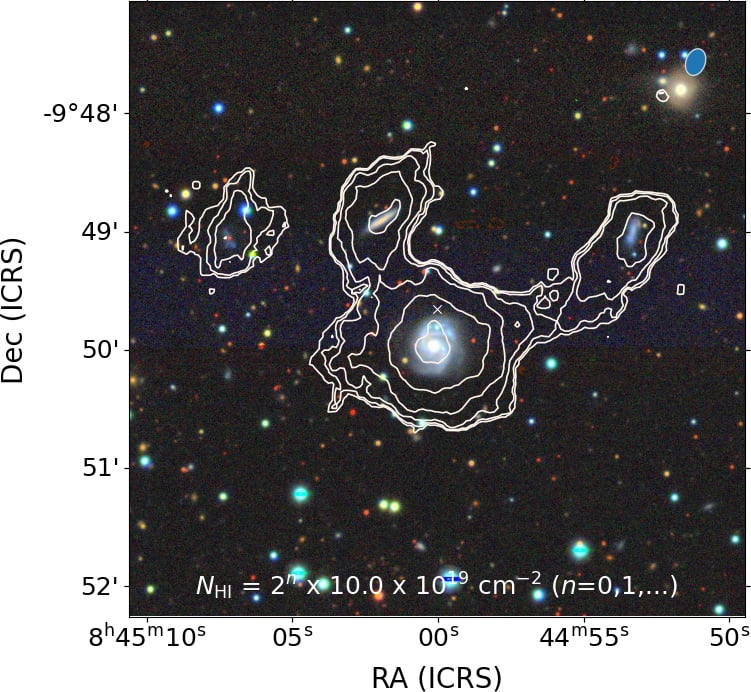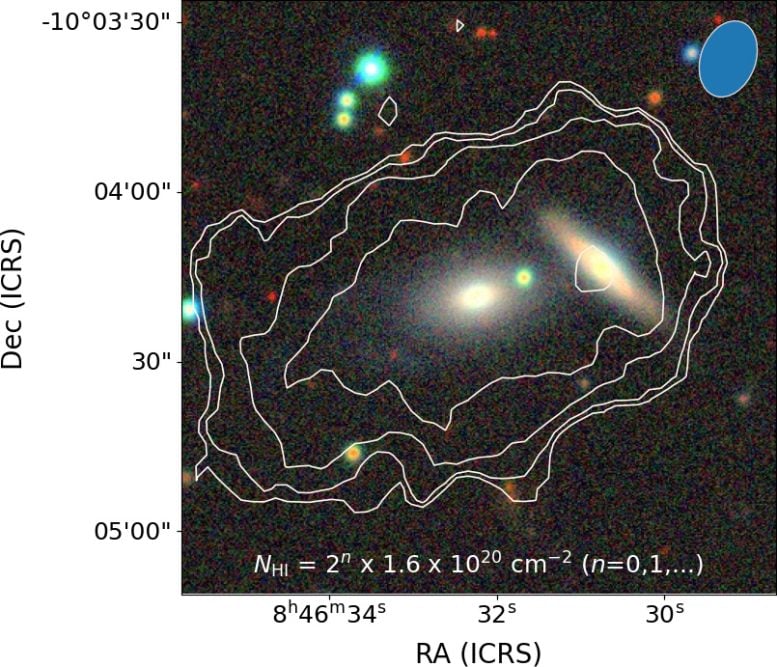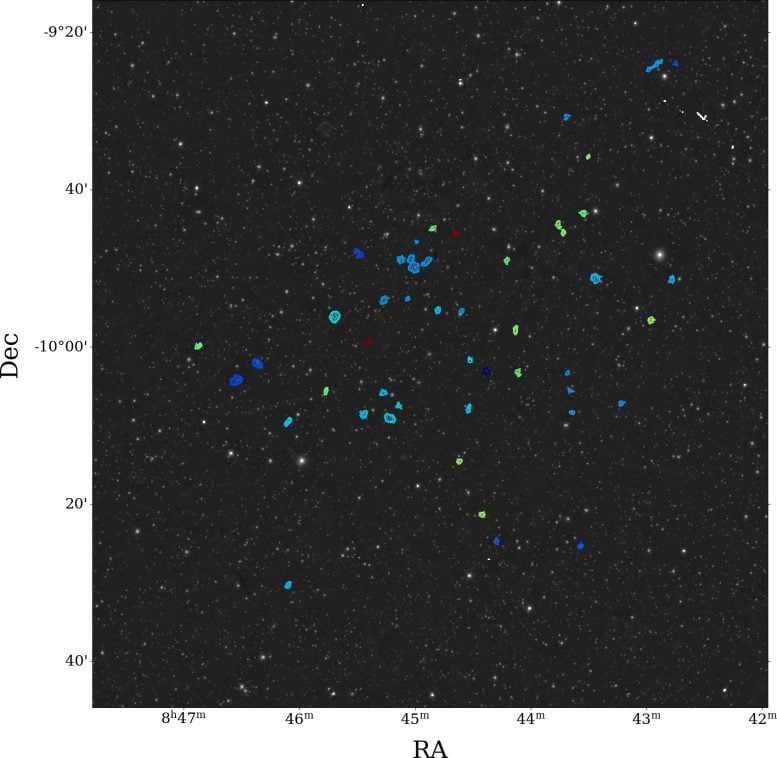When researchers initially studied a single galaxy, they found gas from 49 galaxies. Using the MeerKAT telescope, they identified important galaxy groups and dynamics, highlighting the instrument’s potential for future astronomical research.
A global team of astronomers, with the help of South Africa’s MeerKAT radio telescope, has discovered 49 new gas-rich galaxies.
Dr Marcin Glowacki from the International Center for Radio Astronomy Research (ICRAR) Curtin University node in Western Australia led the research, which aimed to study star-forming gas in a single radio galaxy. Although the team didn’t find any star-forming gas in the galaxy they were studying, Dr. Glowacki discovered other galaxies when he examined the data.
In total, gas from 49 galaxies was detected. Dr Glowacki said this was a good example of how good an instrument like MeerKAT is for finding star-forming gas in galaxies.
An international team of astronomers using South Africa’s MeerKAT radio telescope discovered 49 new galaxies in less than three hours of observation. Credit: ICRAR
The observation lasted less than three hours and was assisted by IDIA (Interuniversity Institute for Data-Intensive Astronomy), which made the discovery possible.
“I didn’t expect nearly fifty new galaxies to be discovered in such a short period of time,” he said. “By implementing different techniques used in other MeerKAT surveys to find galaxies, we were able to detect all of them and reveal their gas content.”

Four nearby galaxies (shown as white outlines) among the 49 galaxies discovered by MeerKAT. Three of the galaxies are connected by their gas content. The largest galaxy is stealing gas from two neighboring galaxies. Background color image from DECaLS DR10 optical measurement. Image source: ICRAR
“49ers” galaxy
The new galaxy was informally known as the “49ers,” a reference to the miners of the California Gold Rush of 1849. Dr. Glowacki believes the 49 new galaxies are as valuable as nuggets of gold in the night sky. Many galaxies are close to each other, forming galaxy groups, and several galaxy groups were discovered in a single observation.
The three galaxies are directly connected through their gas.

MeerKAT example of stand-alone gas detection. Image source: ICRAR
Dr Glowacki said: “These three galaxies are particularly interesting because by studying galaxies with other wavelengths of light, we found that the central galaxy is forming many stars. It is likely to steal gas from the companion galaxy to form its stars. Providing fuel, this could cause two other galaxies to become inactive.
Professor Ed Elson from the University of the Western Cape, co-author of the paper, said: “This discovery highlights the raw capabilities of the MeerKAT telescope as an imaging instrument. The methods we have developed and implemented to study 49ers will be of great benefit to the MeerKAT large scientific survey and Small observing campaigns like ours are useful.

49ers – 49 new gas-rich galaxies detected by the MeerKAT radio telescope in South Africa. Each detection is shown as a colored outline, with redder colors representing gases farther away and bluer colors representing gases closer to us. Background image from the optical PanSTARRS survey. Image source: ICRAR
Dr. Glowacki recently discovered more gas-rich galaxies with the help of ICRAR summer student Jasmine White, who worked with him and analyzed the brief MeerKAT observations.
Dr Glowacki said: “We hope to continue our research and share the discovery of more new gas-rich galaxies with the wider community as soon as possible.”
Reference: “Accidental discovery of Hi-rich galaxy clusters using MeerKAT” by M Glowacki, L Albrow, T Reynolds, E Elson, EK Mahony and JR Allison, March 26, 2024 Royal Astronomical Society monthly notices.
DOI: 10.1093/mnras/stae684
#Astronomers #discover #galaxies #hours
Image Source : scitechdaily.com
